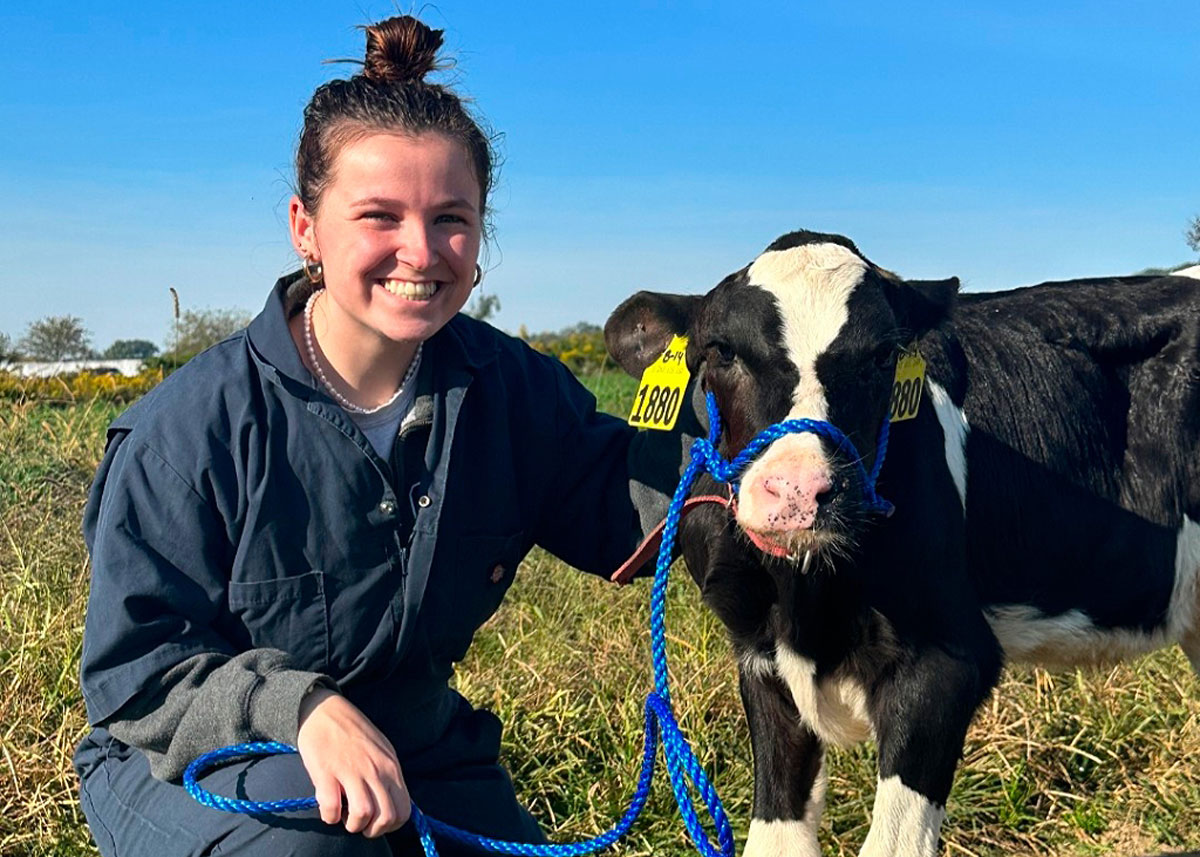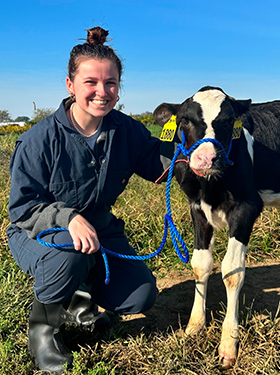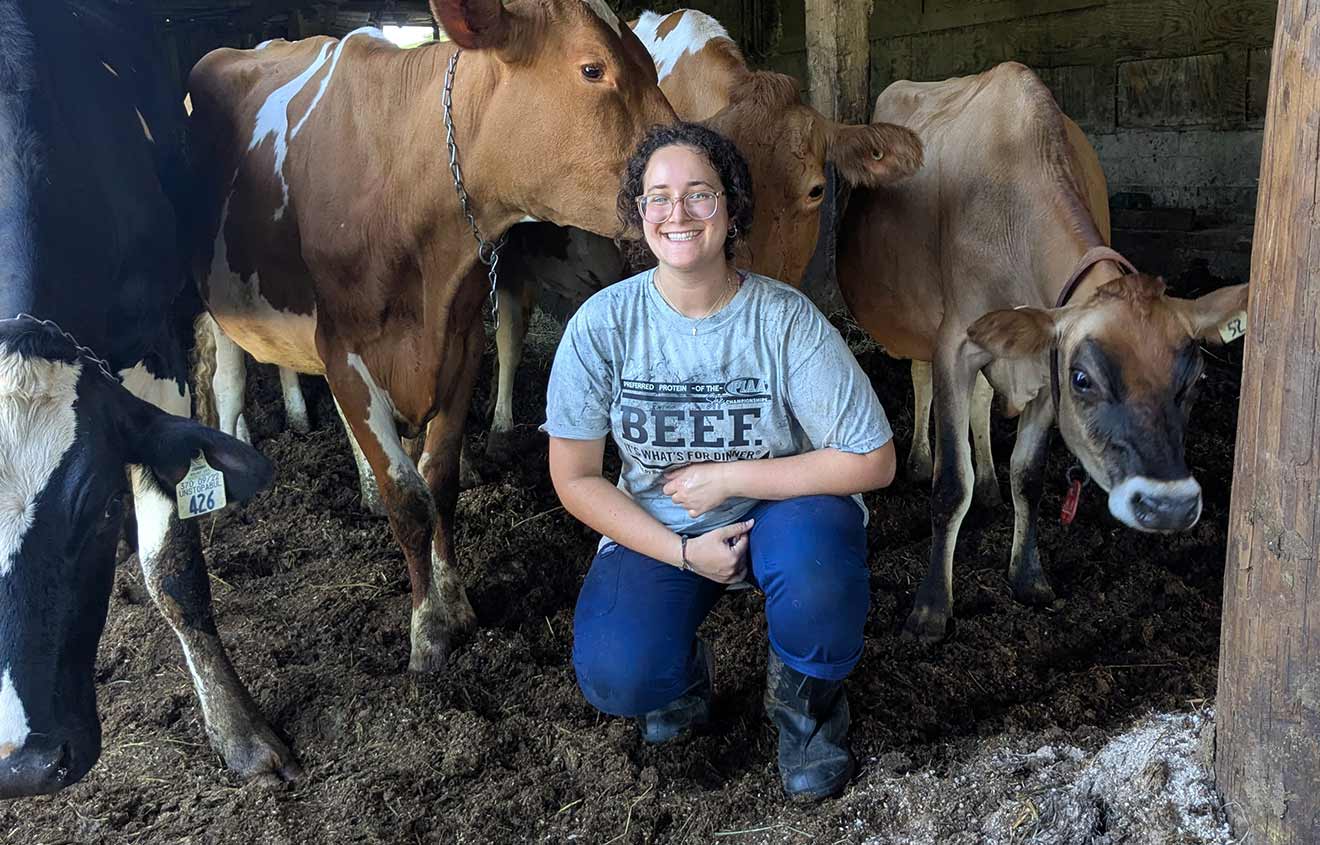
Strengthening the Rural Veterinary Workforce to Advance Animal Health and Thriving Livelihoods
August 15, 2025

Veterinary professionals in rural areas are essential to animal health, global food security and thriving rural economies. Yet, rural areas face acute shortages of livestock veterinarians. In fact, about 500 U.S. counties lack sufficient access to veterinary care for livestock and poultry.1 These challenges stem from high veterinary student debt, limited rural career support and work-life balance issues due to the demanding nature of many rural veterinary careers.
To support veterinarians and livestock producers, the Zoetis Foundation has provided grant funding to the Farm Journal Foundation (FJF), which leads systemic solutions to strengthen rural veterinarian livelihoods. In 2022, FJF launched data-driven solutions co-created with over 40 partners to build a sustainable, inclusive pipeline of veterinary professionals with support at every stage. From practical guidance on navigating veterinary school to resources on business development in rural communities, the program equips future rural veterinarians with tools for long-term success. Beyond resources, FJF cultivates collaboration across veterinary, academic and agricultural sectors to identify workforce gaps and implement transformative solutions.
For students like Lydia Periconi, who is pursuing a Doctor of Veterinary Medicine and a Master of Public Health at the Virginia-Maryland College of Veterinary Medicine, FJF’s support has been instrumental.
“The more I became exposed to large animal medicine, particularly dairy and beef, I fell in love. I know there is such a need for these types of veterinarians, and I feel that I would have a huge impact in this role. Community engagement, food safety, and sustainability are all important aspects of the role of a rural veterinarian.”
—LYDIA PERICONI
Despite their importance, there are significant challenges in pursuing a career as a rural veterinarian. Gillian Martin, an aspiring veterinary school student, speaks to these.
“The biggest challenges are the financial cost of veterinary school and the current shortage of veterinarians. This program has helped address my concerns about the financial aspect of veterinary medicine by providing information about financial planning and debt management.”
—GILLIAN MARTIN

Sophia Kutsaya, a student at Royal Veterinary College in London, shares how FJF’s resources are providing essential support.
“It can be a challenge finding a good work-life balance or establishing a good financial plan. The programs found on the Farm Journal Foundation’s website explain how setting up boundaries and creating financial goals are critical for the challenges of rural medicine.”
—SOPHIA KUTSUYA

Dr. Clint Neill, Veterinary Program Manager at Farm Journal Foundation, emphasizes the importance of comprehensive support in building sustainable and fulfilling rural veterinary careers.
“We want to help veterinary students at every point along their educational journey into their career in rural practice. For undergraduates — it supports academic success and financial resources. It helps veterinary students think about loan forgiveness programs, how to start a business and importantly, what they actually want from a career. And it encourages early career professionals to build on this foundation for a successful, long-term career as a rural veterinarian supporting our food systems.”
—DR. CLINT NEILL
Solving the rural veterinary shortage requires coordinated, sustained effort from education institutions, industries and communities. The Zoetis Foundation supports efforts to help build a thriving veterinary profession and help ensure every community has access to animal care they need.
Resources
1 Addressing the Persistent Shortage of Food Animal Veterinarians and Its Impact on Rural Communities by Clinton L. Neill, Ph.D.